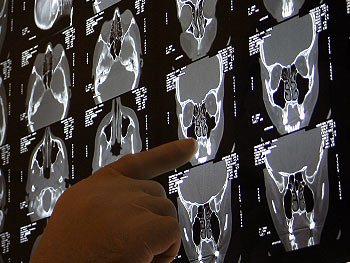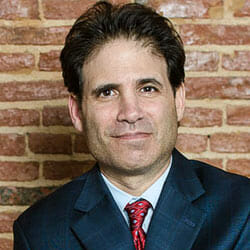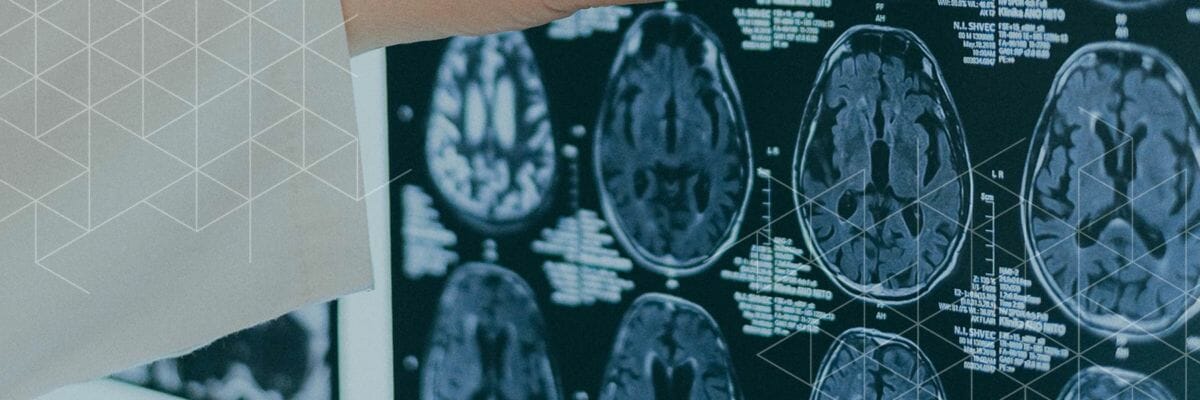Taking Care of Head Injuries Is a No-Brainer
 When you hit your head, especially when you don’t see any blood, do you take it seriously? Our brain is the true center of our body, orchestrating all bodily functions and allowing us to experience life to the fullest. When a traumatic brain injury (TBI) occurs, that all can change – the range of consequences related to brain injury is broad and can result in long-term damage to sensory and mental processes, physical changes, diseases such as Parkinson’s and Alzheimer’s, and even coma or death.
When you hit your head, especially when you don’t see any blood, do you take it seriously? Our brain is the true center of our body, orchestrating all bodily functions and allowing us to experience life to the fullest. When a traumatic brain injury (TBI) occurs, that all can change – the range of consequences related to brain injury is broad and can result in long-term damage to sensory and mental processes, physical changes, diseases such as Parkinson’s and Alzheimer’s, and even coma or death.
Brain injuries are incredibly common. The Centers for Disease Control and Prevention (CDC) estimates that about 1.7 million cases of TBI occur annually. While about 1.4 million people are treated in an emergency room and then released because their injuries are minor, over 50,000 people die, and 275,000 are admitted to the hospital after emergency assessment, every single year.
The demographics indicate those aged from birth to four years, 15 to 19 years, and 65 or older are the ones most likely to suffer a TBI. Nearly half a million kids from birth to 14 visit emergency departments for TBI each year; young brains are growing and especially vulnerable. But it is adults 75 years and older who have the highest rates of hospitalization and death related to TBI. In such cases, consulting a Baltimore birth injury lawyer can provide essential guidance and support for families navigating these complex situations.
Have we gotten your attention yet?
The Definition of TBI
A traumatic brain injury is caused by a blow to the head that shakes or jars the brain inside the skull. Although the head contains fluid that cushions the brain from a mild impact, a sudden and violent blow can cause the brain to smash into the skull bone and become damaged.
TBIs are graded, with 3 being the most severe:
- Grade 1 (mild) TBIs generally have symptoms that last less than 15 minutes, with no loss of consciousness.
- Grade 2 (moderate) TBIs have symptoms lasting longer than 15 minutes, but with no loss of consciousness.
- Grade 3 (severe) TBIs involve a loss of consciousness with symptoms that linger.
While at times a brain injury is obvious, involving wounds, fractured bone, and blood, sometimes a brain injury has little to no external sign, Even in those cases, it is important to seek medical help.
TBI Signs and Symptoms
Any of the symptoms below that follow a blow to the head could be a sign of a TBI:
- Confusion
- Amnesia
- Clumsiness or lack of coordination
- Slurred speech
- Nausea or vomiting
- Dizziness
- Blurred vision
- Sensitivity to light or noise
- Ringing in the ears
- Fatigue and sleepiness
- Behavioral changes.
In children, additional signs to watch for are:
- Any refusal to eat, drink, or nurse
- An inability to be consoled, meaning, the child will not stop crying.
Situations That Can Cause Brain Injuries
Many situations can result in a TBI:
- Falls of all kinds
- Car accidents
- Sports and play
- Occupational injuries, such as from explosions or similar concussive events
- Unintentional blunt force trauma
- Intentional blunt force trauma (assault, shaken baby syndrome).
Youth Athletics and Head Injuries
 When Dr. Ann McKee examined the brains of 202 deceased former football players, the results kept her up at night. In her research, McKee found that 87 percent – 177 players – had chronic traumatic encephalopathy (CTE). When her study is narrowed to former NFL players, the results were even more alarming; out of the 110 former NFL players she examined, 110 had CTE. McKee is the chief of neuropathology at the VA Boston Healthcare System and director of BU’s CTE Center. She has been researching these types of injuries for decades, playing the role of safety advocate and sounding the alarm over head injuries and CTE in athletes. Continue Reading
When Dr. Ann McKee examined the brains of 202 deceased former football players, the results kept her up at night. In her research, McKee found that 87 percent – 177 players – had chronic traumatic encephalopathy (CTE). When her study is narrowed to former NFL players, the results were even more alarming; out of the 110 former NFL players she examined, 110 had CTE. McKee is the chief of neuropathology at the VA Boston Healthcare System and director of BU’s CTE Center. She has been researching these types of injuries for decades, playing the role of safety advocate and sounding the alarm over head injuries and CTE in athletes. Continue Reading
Acquired Brain Injury
So far, we have focused on TBIs, but there is also another class of brain injuries. Acquired brain injury (ABI) happens at the cellular level, meaning it does not involve a blow to the head. An ABI can arise from:
- Poisoning or toxin exposure, such as carbon monoxide
- Anesthesia problems
- Strangulation or drowning
- Stroke
- Heart attack
- Drug overdose.
Most of these causes starve the brain of oxygen, either partially (hypoxic brain injury) or completely (anoxic brain injury). Hypoxic brain injury can also occur when a person has suffered a TBI.
Multiple Injuries and Second-Impact Syndrome
Recently, interest has become focused on those who undergo repeated brain injury, such as football players and boxers. More than one TBI can lead to serious, chronic problems. Because of this, while the brain is healing, it is especially important to avoid situations which would cause further injury.
Multiple TBIs can also lead to second-impact syndrome, which is almost always fatal. SIS causes an enormous increase in brain swelling and pressure, resulting in severe damage or death. If a TBI occurs before the person has fully recovered from a previous TBI, second-impact syndrome can occur within minutes.
Diagnosing Brain Injury
In addition to a physical examination and asking the patient (if conscious) questions, medical personnel have a variety of diagnostic tools they can use, including:
- Computerized tomography (CT) scan, which creates a series of X-rays that can uncover evidence of bleeding, clots, and swelling in the brain.
- Magnetic resonance imaging (MRI), which uses radio waves and magnets to produce detailed pictures of the brain. It is often used after the person has been medically stabilized.
- Intracranial pressure monitor, which is a probe that doctors insert through the skull to monitor pressure caused by the brain’s swelling.
Contact a Baltimore Brain Injury Lawyer
It can be difficult for victims and their families to negotiate the confusing emotional and legal territory of a brain injury. The victim may experience fundamental shifts in ability or personality that can affect day-to-day life, ability to work and earn money, and capacity to participate in family and friend relationships. The costs of brain trauma can be crushing and affect an entire family’s finances and peace of mind.
At the Law Offices of Steven H. Heisler, we know how difficult a brain injury can be for both the injured person and for his or her family. In our work to help victims of TBI recover compensation from drunk drivers, careless nursing homes, and negligent employers, we’ve become aware of the complexity of issues surrounding brain injuries in Maryland.
If you or a family member has been the victim of a brain injury, call Baltimore personal injury attorney Steve Heisler. Keep in mind, however, that there is a statute of limitations – or a time limit – for filing personal injury claims. If you have been injured in an accident or have otherwise incurred a personal injury, you should not delay. Contact the Law Offices of Steven H. Heisler of Baltimore, Maryland, for a free initial consultation by calling (410) 625-4878 today.

Attorney Steve Heisler
Steve Heisler decided in 1996 that he was going to focus his law practice exclusively on injury cases. Since then, he has been representing injured people against insurance companies, disreputable medical practitioners and Big Pharma, and doing it with compassion, honesty and level-headed rationality. [ Attorney Bio ]

